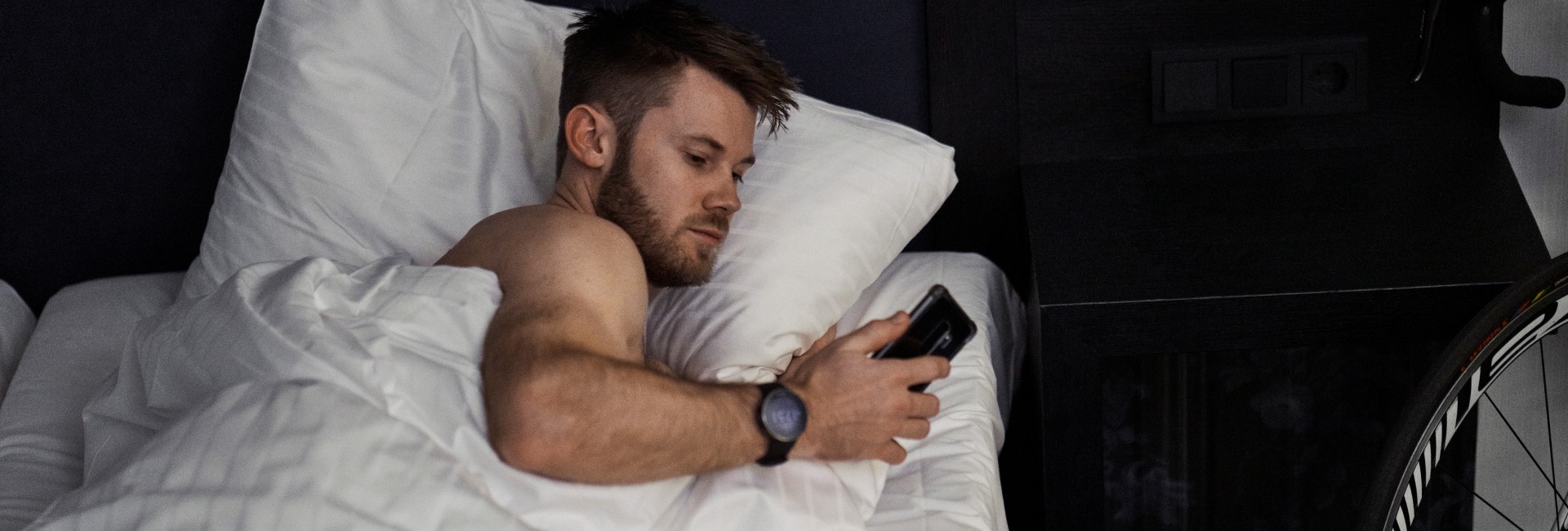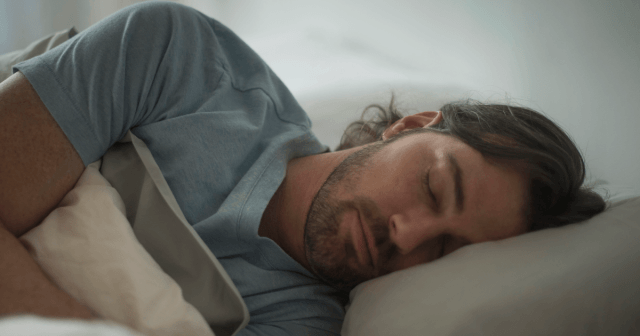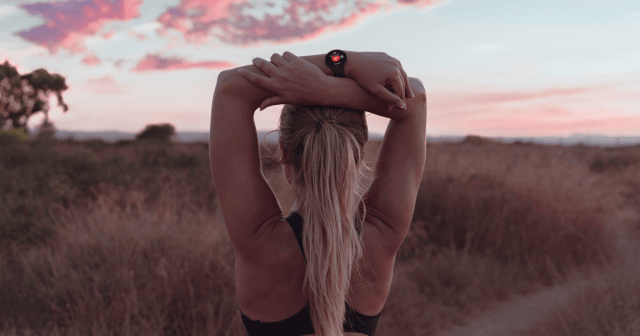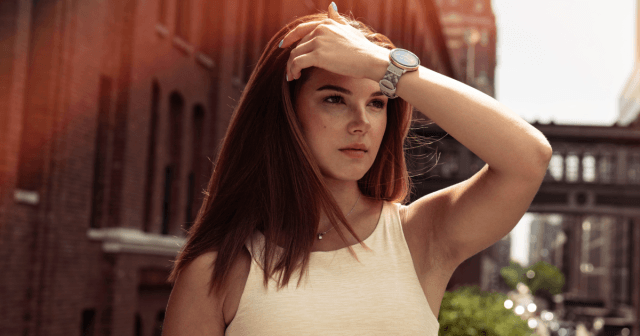We often associate drinking alcohol with the evening. From cocktail hour and wine with dinner to a cheeky nightcap, having a drink or two is generally considered most socially acceptable after the sun has gone down.
But what impact does drinking alcohol have on our nightly rest? Can it help or hinder our recovery? Does alcohol increase your heart rate while sleeping? Or otherwise, does it help you fall asleep? We look at the difficult relationship between alcohol and sleep and how you can be mindful of this in the evening.
How alcohol affects your sleep
Drinking alcohol changes the way you sleep. This difference occurs because alcohol alters your sleep architecture, the basic structure of a typical night’s sleep.
Most nights, you will flow through several sleep cycles containing different sleep stages: non-rapid eye movement (NREM) sleep and rapid eye movement (REM) sleep.
When you drink alcohol, especially in the evening, it changes the way these sleep stages occur because your body has the additional task of metabolizing what you have consumed on top of the usual functions of sleep. So, the alcohol will have a particular effect on the first half of your sleep while this processing takes place and then a different effect on the second half of your sleep.
Alcohol will have a particular effect on the first half of your sleep while this processing takes place and then a different effect on the second half of your sleep.
During the first half of your rest (approximately the first four hours), your slow-wave sleep of NREM stage 3 increases, but your REM sleep decreases because alcohol suppresses your rapid eye movement sleep. This stage of sleep is vital for dreaming, learning, and memory processing, so these benefits are diminished.
During the second half of your sleep (approximately the last four hours), the alcohol metabolizing ends, and your brain experiences what is known as the ‘rebound effect.’ With most of the alcohol gone, your body tries to revert to your normal sleep cycle but often overdoes it. So, this usually results in sleep cycles of longer-than-normal REM sleep matched with very light NREM stage 1 sleep. The result is a fragmented and easily interrupted second half of the night.
It’s also important to note that your body does a lot of important work for your physical and mental health when you sleep. So, when it has to focus on processing alcohol, your body cannot provide some of these restorative benefits you need every night, which, in turn, affects your daily life.
does alcohol increase heart rate while sleeping?
Short answer, yes.
Long answer… have you ever noticed that your ANS Charge on Nightly Recharge™ is poor after drinking alcohol the previous day? That’s because the alcohol in your system affects both your Heart Rate (HR) and Heart Rate Variability (HRV), two metrics used to measure your ANS Charge. Alcohol increases your heart rate while sleeping and decreases your HRV.
When you drink alcohol, your SNS remains active and doesn’t cede control to your PSNS, which interferes with the restorative functions of sleep.
HRV gives you an idea about the state of your autonomic nervous system (ANS). When measured overnight, it provides a helpful insight into your general wellbeing. Low HRV can often be a sign of poor nutrition, illness, an increase in stress, or insufficient sleep. It will also drop lower when you drink alcohol.
Your ANS comprises multiple divisions, including your sympathetic nervous system (SNS) and parasympathetic nervous system (PSNS). When you have a sober night of sleep, your PSNS becomes activated, which helps to relax your muscles, lower your heart rate and ensure you have a good night of rest. However, when you drink alcohol, your SNS remains active and doesn’t cede control to your PSNS, which interferes with the restorative functions of sleep.
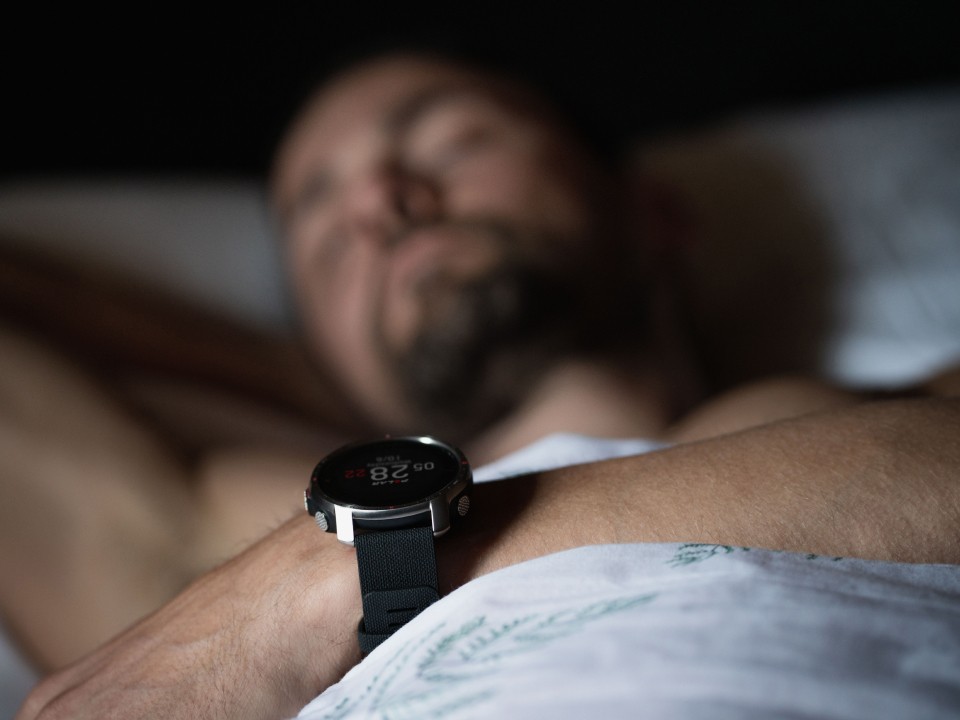
Does alcohol help you sleep?
We all know alcohol makes us drowsy, so surely it helps us sleep? Well, not exactly.
Alcohol makes us sleepy by increasing the levels of adenosine in the brain. This chemical is what caffeine blocks to make you feel more alert, and, in turn, alcohol enhances to make you feel drowsier.
At the same time, the consumption of alcohol depresses your central nervous system, which has a sedative effect on your body. Your brain functioning and neural activity slow down, which is why you may slur your speech after a few drinks. It also makes you drowsy and often makes people want to sleep, hence why alcohol is often thought of as a sleep aid.
However, as we’ve seen above, alcohol significantly impacts the quality of our sleep, which means that while it may help you to drift off, it doesn’t help you sleep. You’ll experience disruptions to your sleep cycles, especially if you wake up.
A 2009 study from the Brown Medical School, USA, found that the sleep-promoting effects of alcohol diminished in as few as three days of continued use and can increase the chances of experiencing insomnia.
The sedative effect lessens very quickly for people who regularly drink before bedtime. A 2009 study from the Brown Medical School, USA, found that the sleep-promoting effects of alcohol diminished in as few as three days of continued use and can increase the chances of experiencing insomnia.
Alcohol also affects your breathing because it relaxes your airways. This change is why some people snore more after drinking, which may not necessarily impact your sleep, but it will probably disrupt the sleep of others around you. It can also worsen obstructive sleep apnea, a sleep-related breathing disorder that causes long pauses in your breathing while you are asleep.
So, yes, drinking alcohol will make you sleepy, but regular use will lessen this effect, and in both cases, it will reduce the quality of your sleep.
Why does alcohol keep me awake?
Do you find it hard to sleep through the night after drinking alcohol? You’re not alone. For many people, once the sedative effect of alcohol has worn off, they wake up and can’t get back to sleep.
It’s not uncommon for people to wake up at 2 or 3am after drinking. Not only is this frustrating, but alcohol can have a very disruptive effect on your circadian rhythms, causing both your sleep and awake time to shift and potentially causing social jetlag.
During the latter half of the night, your sleep becomes lighter, fragmented, and more prone to disruption.
So why does alcohol make it hard to stay asleep? As we have seen above, your body takes a few hours to metabolize alcohol. After this, you experience the ‘rebound effect,’ which means your brain kicks into overdrive, becoming more active and attempting to fix your sleep cycles. So, during the latter half of the night, your sleep becomes lighter, fragmented, and more prone to disruption.
Alcohol is also a diuretic, which means you will lose considerably more fluid from your body than usual. Thus, you are more likely to wake up during the night because your bladder is full.
So, for all these reasons, you will either sleep fitfully, wake up and potentially not be able to get back to sleep after drinking alcohol.
How does the combination of alcohol and sleep affect your fitness?
Quality rest and recovery are essential for anyone who is regularly active. Without it, your body cannot handle the strain from any form of training or exercise.
As we have seen above, the consumption of alcohol can have a significant impact on our sleep. This disruption affects your exercise capacity the next day as your body cannot prepare fully. But there is also another way alcohol and sleep can affect our fitness.
Sleep is vital for muscle growth, so when the consumption of alcohol disrupts your sleep, you reap fewer rewards from all the training you did.
If you drink after a workout (for example, a few beers after a football game with friends), the alcohol will prevent your body from completely repairing and regenerating overnight. Sleep is vital for muscle growth, so when the consumption of alcohol disrupts your sleep, you reap fewer rewards from all the training you did.
It’s also important to drink plenty of water after drinking alcohol because of the additional fluids you will have lost because it is a diuretic. If not, you will be too dehydrated to exercise.
In addition to this, your muscles need to refuel with glycogen after any form of workout. However, a 2003 study from the Australian Institute of Sport indicated that alcohol consumption was likely to interfere with an athlete’s ability or desire to consume the amount of carbohydrates required to restore glycogen levels in their muscles.
So, it’s best to refrain from drinking the day before or the evening after a workout to ensure you reap the full benefits of your exercise.
Options when having alcohol before bed
If you are trying to work out how to balance socializing with good-quality sleep, here are some ideas that can help:
- Finish four hours before: the best way to limit the effect that alcohol has on your sleep is to stop four hours before your bedtime. That way, your body can process the majority of the alcohol, lessening the effect that it will have on your rest and recovery.
- Less is more: if you drink in the evening, only have one. The greater the quantity of alcohol you consume, the more significant the impact it has on your sleep. So, if you drink alcohol before bed, keep it to a minimum.
- Switch to a sober option: a great way to balance your socializing and sleep is to switch to an alcohol-free drink in the evening. Yes, you can opt for the classic sparkling water, but nowadays, you have a surprising number of options. Alcohol-free beer, wine, and spirits are becoming increasingly easy to find at your local bar, so all you need to do is switch your favorite drink to a sober one.
So, be mindful of when and how much you’re drinking. Plus, pay attention to your Nightly Recharge™ and how you feel during and after your sleep to understand what works for you.
Resources:
Colrain IM, Nicholas CL, Baker FC. 2014. Alcohol and the Sleeping Brain. Handbook of Clinical Neurology.
Sagawa Y, Kondo H, Matsubuchi N, Takemura T, Kanayama H, Kaneko Y, Kanbayashi T, Hishikawa Y, Shimizu T. 2011. Alcohol has a dose-related effect on parasympathetic nerve activity during sleep. Alcoholism: Clinical and Experimental Research.
Timothy Roehrs, Ph.D., and Thomas Roth, Ph.D. Sleep, Sleepiness, and Alcohol Use. National Institute on Alcohol Abuse and Alcoholism.
If you liked this post, don’t forget to share so that others can find it, too.
Or give it a thumbs up!
I like this article
Please note that the information provided in the Polar Blog articles cannot replace individual advice from health professionals. Please consult your physician before starting a new fitness program.

